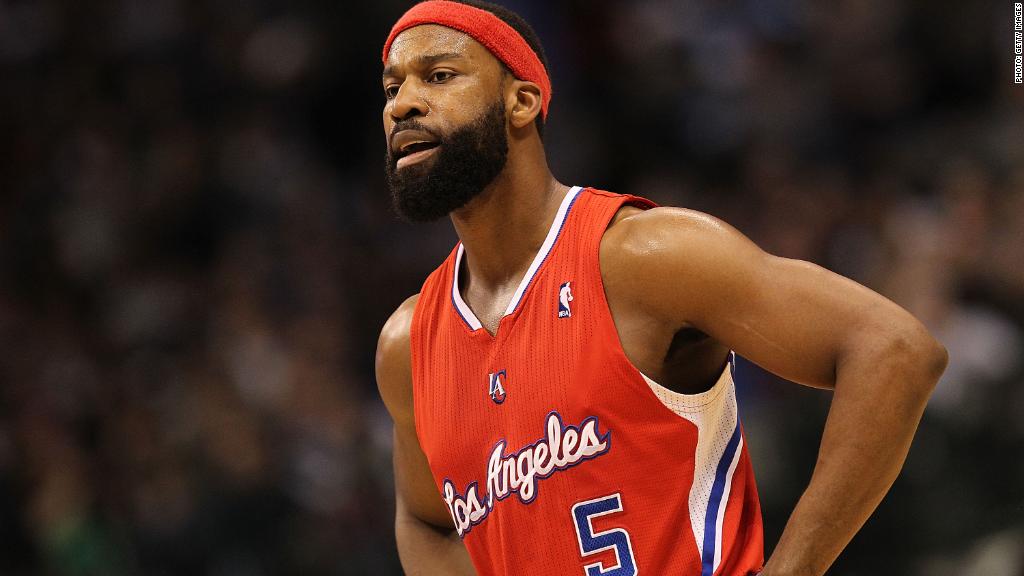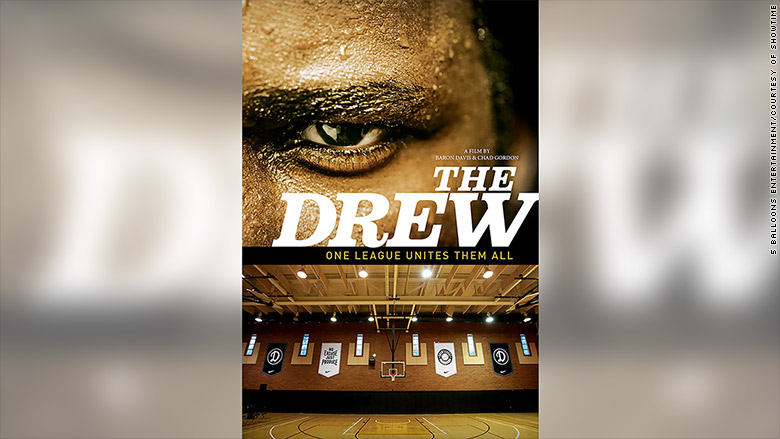
Baron Davis has become a storyteller who champions racial justice and gender equality.
The former NBA star's production companies are putting out provocative film, television and digital projects aimed at increasing the representation of people of color and women in media. One of his documentaries aired as an ESPN 30 for 30, and others have won accolades.
Davis, who was drafted by the Charlotte Hornets in 1999, studied history, TV and film at UCLA before joining the league, so transitioning to entertainment production was a natural fit.
He started with an ambitious makeover of a holiday icon: Santa Claus.
Davis created The Black Santa Company in 2016 after looking at how black versions of Santa were depicted. They often showed a character wearing gold chains or hanging out with naked women or as a "bum."
"I was like, where would you ever find representation of a black man that's jolly, giving, on time?" Davis told CNNMoney. "There is no projection of the goodness and the soul and the sweetness that we bring to this world. We need a character as black men, as black people, as people of diverse color to see something positive."
By making content for families, Davis hopes to connect with adults and kids and prompt important conversations about social issues.
"It's going to drive conversation at home," he said. "It's going to build that kid so that kid knows: 'I've already seen this before and nothing is new to me because these are the things that I'm seeing in the storytelling that I'm growing up on.'"
But he's not stopping with Santa.
Related: NBA encourages players to engage on social issues
Davis' TV and film production company, No Label, will create content with a focus on diversity and empowerment.
It'll follow up on some thoughtful work he's already produced, including the acclaimed documentaries "Crips and Bloods: Made In America," and "The Drew: No Excuse, Just Produce."
Davis said the films arose from a need to communicate what it was like to grow up in South Central Los Angeles, while also giving a voice to the misrepresented.

"The Drew," which Davis also directed, is about a storied basketball league in the community that attracts top talent. "Crips and Bloods" chronicles the rise of those infamous gangs through first-person accounts.
"You see these documentaries on gangs, and they're just telling you what the gang's doing, telling you, telling you. So it's like you're so afraid of them and they strike this fear in you," Davis said. "I was like, you know what, let's turn the camera and let's give the camera to them."
Davis sought to show a different side of gang life.
"They're human beings and not all gang members kill people," he said. "With the documentary it was really to reverse the camera and let people know, let people see. Let the gang members themselves, see themselves for the first time."
Davis said people need to be able to be self-aware to change -- something the documentary helped with. He said the guys in the film have gone on to do gang prevention work, have gotten jobs and have started coaching kids.
"Sometimes you have to let the people who are being pressed, [who] are being represented and misrepresented in media, you gotta let them have a voice so they can see themselves," he said.


